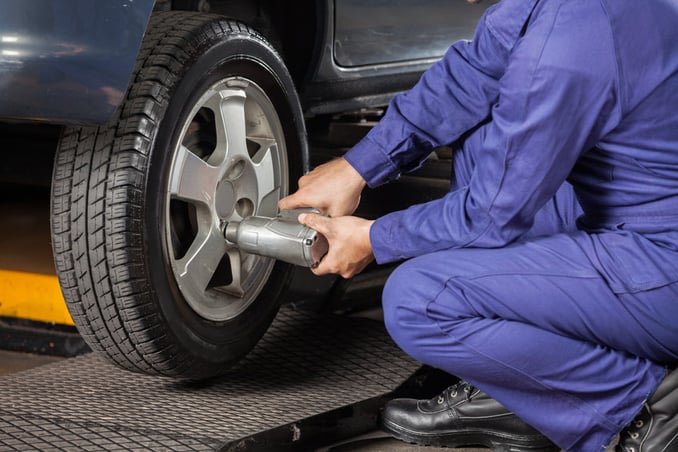Tire Solution: The Influence of Weather Conditions
When it pertains to making sure optimal efficiency and security when traveling, comprehending the influence of weather on tire service is critical. From scorching heat to icy roadways, each climate aspect can considerably influence tire functionality and overall driving experience. By diving right into the effects of differing weather on tires, vehicle drivers can get valuable understandings that may improve their vehicle's efficiency and longevity. In this conversation, we will discover the detailed relationship in between weather and tire service, losing light on the importance of weather-specific tire upkeep practices and considerations.
Warm and Tire Performance
When exposed to high temperatures, tires experience adjustments in performance that can dramatically impact car security and handling. The warmth produced from long term driving or heat problems causes the tire rubber to soften, leading to minimized tread life and increased wear. As the rubber becomes softer, the tire's hold on the roadway lessens, affecting braking distances and overall traction. In severe situations, extreme warmth can even cause tire blowouts, posing a severe safety and security danger to the lorry and its owners.

Cold Weather Condition Results
Cold weather condition problems can have a substantial influence on tire efficiency and safety and security. As temperatures decline, tire rubber can set, leading to lowered traction on icy or snow-covered roads. In cool weather condition, tires might also shed air stress more swiftly, which can affect taking care of and fuel efficiency. Additionally, chilly temperatures can cause tire sidewalls to stiffen, boosting the risk of damage from gaps or other roadway risks.
To mitigate the effects of cool weather condition on tires, it is vital to regularly check tire pressure and inflate them to the maker's advised levels. Utilizing winter months or all-season tires created for winter conditions can likewise improve traction and grip on icy or snowy roadways. Correct tire maintenance, consisting of normal assessments for wear and damage, ends up being also extra essential throughout cooler months to guarantee optimal performance and safety.
Rainy Issues Effect
Throughout stormy conditions, tire efficiency and safety and security can be substantially influenced by the damp roadway surfaces and lowered presence. The tread pattern of tires plays an important duty in preserving traction on damp roadways. Tires with damaged treads are extra susceptible to hydroplaning, where a layer of water accumulates between the tire and the roadway surface area, leading to loss of traction. To battle this, chauffeurs should frequently check their tires for sufficient step depth and think about purchasing tires specifically developed for damp problems.
In addition, wet climate can likewise lower presence, making it challenging for chauffeurs to see the road in advance plainly (GMC Tire Service). In such problems, it is necessary to change driving speeds accordingly and preserve a safe complying with distance to enable abrupt stops. Properly filled with air tires can also help in preserving control on damp roads by offering much better handling and grasp
Snow and Tire Security
When driving in snowy problems, having the appropriate tires can make a substantial distinction in safety and efficiency. Wintertime tires are developed with unique rubber compounds and walk patterns to offer much better traction on snow and ice compared to all-season tires.

In addition, vehicle drivers must consider setting up tire chains in severe snowy problems. Tire chains offer extra traction by clutching the snow and ice, enhancing stability and control. It is important to follow supplier instructions when making use of and click for more info installing tire chains to protect against damage to the tires and car (GMC Tire Service). By choosing the ideal tires, preserving correct inflation, and taking into consideration added traction aids like tire chains, motorists can improve their safety when browsing snow-covered roadways.
Weather-Related Tire Upkeep
Weather-related tire upkeep encompasses a range of techniques intended at ensuring optimal tire function and longevity in different weather situations. One essential facet of weather-related tire upkeep is tire stress guideline. Inspecting tire walk on a regular basis and changing tires when step wear gets to a particular depth is crucial for maintaining grip and stability in negative weather.
Verdict
In final thought, weather condition conditions have a considerable impact on tire efficiency and safety and security. From warmth affecting tire stress and use to cold weather condition minimizing traction, it is crucial to consider the weather condition when preserving and making use of tires.
In this conversation, we will certainly explore the detailed relationship in between climate conditions and tire service, losing light on the importance of weather-specific tire maintenance practices and considerations.
